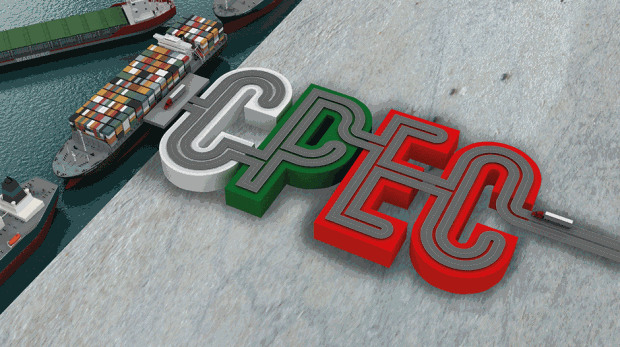By Muhammad Luqman
China has made it clear that the multibillion-dollar economic corridor now under construction in Pakistan has no “hidden” military designs.
Beijing has pledged to invest about $63 billion in Pakistan by 2030 to develop ports, highways, motorways, railways, airports, power plants and other infrastructure in the South Asian country, traditionally a strong ally.
The Chinese have also expanded and operationalised the Pakistani deep water port of Gwadar on the Arabian Sea, which is at the heart of the massive bilateral cooperation, known as the China-Pakistan Economic Corridor, or CPEC. The strategically located port is currently being operated by a Chinese state-run company.
“I want to make it very clear, Belt and Road Initiative, or BRI, and with CPEC under it, it’s purely a commercial development project. We don’t have any kind of military or strategic design for that,” said Yao Jing, Chinese Ambassador to Islamabad in an interview with Voice of America.
Within five years of finalising and launching CPEC, Jing said 22 “early harvest” projects out of the 43 total projects under CPEC have been completed or are under construction, with a total investment of around $19 billion, the largest influx of foreign investment in Pakistan’s 70-year-old history. The projects have already brought 60,000 local jobs and effectively addressed the country’s once crippling energy crisis. Power plants built under the joint venture, officials say, will have added more than 10,000 megawatts of electricity to the national grid by June, leading to a surplus of power.
The Chinese diplomat urged the United States and India to “come to the CPEC project” and “witness the progress on the ground” for themselves, saying it will enable them overcome misunderstandings vis-a-vis CPEC, the VOA reported.
“There are some kind of doubts that maybe there are some things hidden in it. I think that when you have an objective lens to look at this project and to come to the ground to find this progress on the ground then you may have a better understanding of what we are doing here,” said Jing.
Jing explained that a state-to-state defence-related cooperation has for decades existed between the two allied nations and China through “normal channels” is determined to contribute to “military and strategic ability” of Pakistan.
“We don’t want to make the CPEC as such a kind of platform,” the ambassador emphasised. However, he added, it is “natural and understandable” that the project’s massive size and design has raised doubts and suspicions” about its aims. “Basically, it is for China and Pakistan to make this project a successful economic project, then we can make it clear our intention here,” Jing said.
CPEC aims to link the landlocked western Chinese region of Xinjiang to Gwadar, allowing ships carrying China’s oil imports and other goods from the Persian Gulf to use a much shorter and secure route and avoid the existing troubled route through the Strait of Malacca.
There are currently up to 10,000 Chinese nationals working on CPEC-related projects in Pakistan. Ambassador Jing said that 21 new mega-projects, including the establishment of Special Economic Zones across the country, are ready to be launched in the next stage with particular emphasis on encouraging private engagement.
In the next five to seven years, Pakistani officials estimate, CPEC will have created employment for half-a-million Pakistanis. The country’s economy, lately impacted by insecurity and energy crisis, has grown 5.4 percent in the previous financial year, the fastest rate in a decade, and officials forecast the expected growth in the year ending June 2018 will be six percent.















